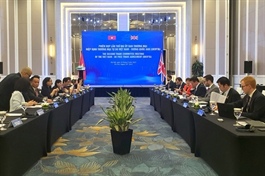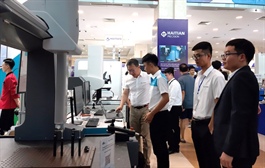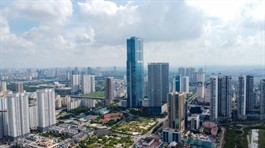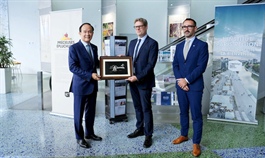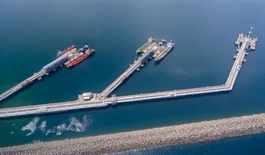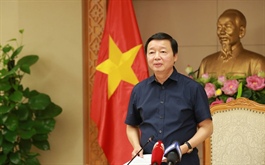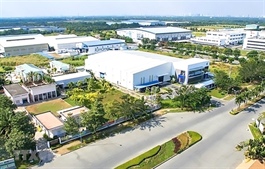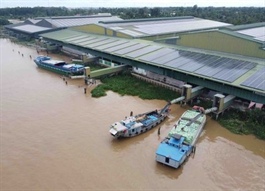Foreign investors face difficulties in land clearance and acquirement
Foreign investors face difficulties in land clearance and acquirement
Despite Việt Nam's recent efforts to improve the business environment, foreign investors still face several barriers such as administrative procedures related to land clearance and acquirement, according to business experts and insiders.
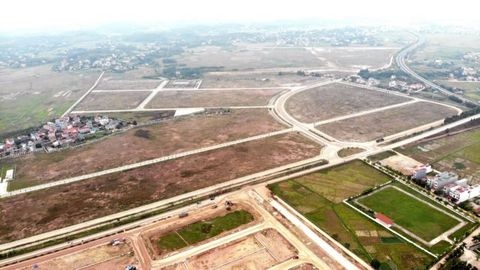
Land clearance for the construction of an industrial park in the northern province of Bắc Giang. — VNA/VNS Photo Danh Lam |
The most challenging tasks for foreign direct investment firms are land clearance and compensation, according to a director of a Japanese investment fund.
While technically, foreign-invested firms can lease land from the State for infrastructure construction the procedures to do so was often less than clear and may prove too time-consuming and complicated without the support of a consulting company.
"There are instances in which ministries and agencies provided explanations about legal regulations and requirements, which investors based on to make their decisions. However, after a period of time, there may be changes in the law but investors' rights were not guaranteed," the director said.
"Furthermore, regulations regarding land access, taxation, and dispute resolution between businesses or between businesses and regulatory agencies are not clear."
In addition, land prices have been steadily on the rise in recent decades, further complicating the progress of settling compensation with local residents and securing land rights for investors.
Investment experts have long voiced their concerns over the complexity of the current land acquirement process, which may turn investors away, especially against a backdrop of rising competition among neighbouring countries.
For example, HCM City, the country's largest economic driver, attracted US$82 billion in FDI in the 1988-21 period but only managed to secure $4.33 billion in 2022, a sharp decrease of nearly 40 per cent compared to the previous year.
There have been industry reports in which foreign investors found the investment environment in Việt Nam and HCM City not attractive due to a number of shortcomings and limitations including slow to address emerging issues, legal overlap and differences among the country's laws, various interpretations for the same laws and substantial legal risk during project implementation.
The proportion of dispute cases with an FDI element accounted for 40 per cent of all cases handled by the Vietnam International Arbitration Centre (VIAC) in 2022, according to a report by the centre, many of which were foreign investors vs State agencies.
"Legal complications could lead to delays in project implementation, negatively affect the country's investment environment," said Châu Đình Bắc, deputy secretary-general of VIAC.
According to a representative from GWA Vietnam, part of the Greatway Advisory Group, the Southeast Asian economy's investment environment will likely look less attractive after the implementation of a global minimum tax of 15 per cent (for corporations and companies with revenue exceeding $800 million annually), an international tax proposal aimed at establishing a minimum corporate tax rate by countries.
Until now, Việt Nam's tax preferential policy has been a powerful tool to attract FDI investment but over 1,000 FDI firms could be affected by the global minimum tax proposal (based on 2020 data), according to a report by the Ministry of Finance.





